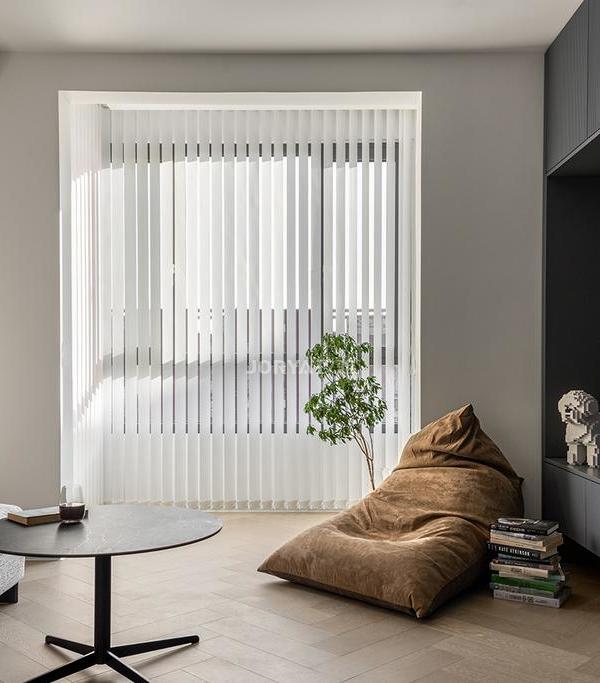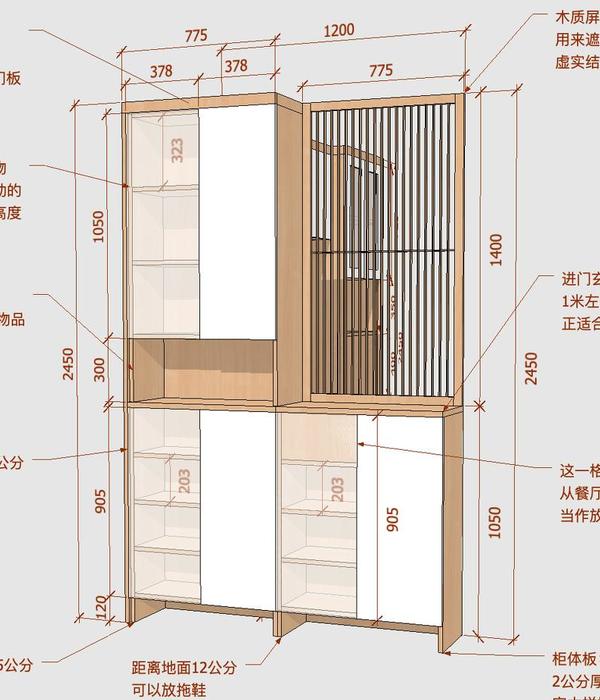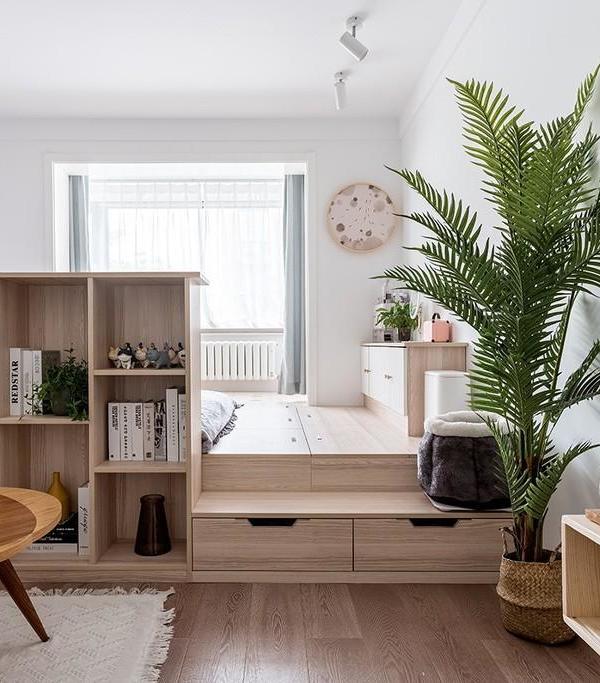澳大利亚的人均寿命在增长,并且在退休后需要享受更好的医疗与健身条件,如果我们创造一个家园,这会是为这类增长中人群提供支持的好时机。我们对Bent Architecture的诉求之一是为地方性老龄化而思考。基于共情的思考,我们希望让年长的居民能独立舒适地生活在他们喜爱的家园中。随着人口年龄增长,专注考虑老龄化和无障碍设计理念能够使建筑不用反复更新也能保证居民自由出行,同时避免了大量维护成本,更不会让老年人感到力不从心。
Australians are living longer and enjoying health and fitness long into their retirement, so isn’t it time we created homes to support and enable this growing demographic? One of our passions here at Bent Architecture is designing for ageing in place. With empathetic design strategies, we can enable people to live independently well into their senior years in a home they love and feel comfortable in. As our population ages, designing homes with ageing in place and accessible design principles in mind will mean homes won’t have to be retrofitted to help with mobility issues, require a lot of maintenance or feel overwhelming for elderly owners.
▼建筑入口,Entrance of the building ©Tatjana Plitt
最近我们有幸获得了设计养老住宅的机会,多亏了两位热爱设计并且有追求的业主,他们准备卖掉家庭别墅并且搬到Mt Eliza村庄附近。John和Ann在距离城镇更近的地方购买了一小块地共度余生,在这里他们有更便于管理的花园,短途步行或开车都能到达的商店。他们最后的愿望就是打造一个舒适节能的家,即使他们年事已高,也能安享晚年。
Recently we were given the opportunity to design a home with ageing in place at the forefront thanks to two design-loving and passionate clients who were ready to sell up their family home and move closer to Mt Eliza village. Purchasing a smaller block closer to town would allow John and Ann to enjoy the rest of their lives together with a more manageable yard and within just a short walk or drive to the shops. The final piece of their dream would be creating a comfortable, energy-efficient home that would support them for years to come, even as they aged.
▼建筑侧立面,Profile of the building ©Tatjana Plitt
对于John和Ann来说,告别他们原本更大的花园和绿树成荫的景色是一个艰难的决定,因此他们的新家构思是一个充满绿色的生活环境。朝向花园的大面积开窗保持了自然与户外的氛围,让人很难意识到这是在普通市郊中的房子。居住空间沿着街区展开,并且朝向北侧和背后庭院敞开,使室内充满阳光。用Ann的话说,“休息室的大窗户使草木茂盛的林地花园映入眼帘,夕阳西下,原声草木焕发出彩虹般的光芒”。房子中央的庭院使人置身于自然之中,同时这也是蕨类植物的最佳观赏地,John和Ann特意将植物从他们原本的房子带到这里。
▼场地概念分析图,Layout concept diagrams ©BENT Architecture
Saying goodbye to their large garden and leafy outlook would be a challenge for John and Ann, so the design of their new home is conceived as a living space surrounded by greenery. Large windows opening onto the garden retain that sense of nature and the outdoors and it’s easy to forget the home is in an average suburban street. The living areas run the length of the block and open to the north side and the backyard, bringing huge amounts of light into the home. In Ann’s words, the ‘large lounge room window frames a grassy woodland garden where the setting sun bathes indigenous grasses and trees in iridescence.’ A courtyard in the centre of the home enhances the feeling of being surrounded by nature and is a perfect spot for some of the ferns John and Ann brought from their previous house.
▼入口特写,Close-up of the entrance ©Tatjana Plitt
▼植被丰富,Rich plants ©Tatjana Plitt
他们的新家之所以感到被花园环绕,另一个关键因素是他们决定取消房子面前的栅栏,而是将花园直接延伸到自然地带。这使得房子在街道上与众不同,也让Ann和John尽情享受这片场地上复原的原生植物。住宅正面大型窗户的设计,让绿意满满的景色穿过开敞的窗洞进入到John和Ann的创作之中。一位邻居曾称这对夫妇为“拥有迷人花园的John和Ann”。
Another key to the sense that their new home is surrounded by garden was the decision to do away with a front fence and instead run the garden right out onto the nature strip. This sets the home apart in the street and allows Ann and John to enjoy their passion for gardening and restoring the indigenous vegetation to the site. Combined with generous windows in the front of the home, long vistas through the grassy woodland surround John and Ann in their creation. A neighbour even refers to the couple as ‘John and Ann with the beautiful garden.’
▼室内概览,Overview of the interior ©Tatjana Plitt
▼起居空间,Living room ©Tatjana Plitt
“建造这栋住宅和原生花园是我们为城市环境注入灵魂的方式,以及长期以来我们生活方式的诠释”,Ann解释道。“对我们而言,新家打破了传统居所和自然世界的隔阂。这座住宅将会是我们晚年最大的慰藉。” ‘The crafting of this home and its indigenous garden was our way of bringing soul to an urban setting and interpreting our long-established lifestyle’, Ann explains. ‘For us, the new home breaks down the barrier between traditional habitation and the natural world. In our older years, this property provides great solace.’
▼良好的景观视野,Good view to the landscape ©Tatjana Plitt
带有可上锁门的通高木格栅屏风在让光线透过的同时为房子提供遮挡。因为房子后面是无法从街道进入的,Ann说到她甚至觉得这样的设计比围栏更能感到安心。
A full-height timber screen with lockable door protects the side of the house, while still letting light and views through. Ann commented that she actually feels safer with the screen in place than she might with a front fence, knowing the rear of the house is inaccessible from the street.
▼餐厅概览,Overview of the restaurant ©Tatjana Plitt
▼餐厅景观,Beautiful view of the restaurant ©Tatjana Plitt
我们关注到面积缩小带来的一个顾虑是当他们的孩子或者孙子来看望时没有足够的地方过夜。通过在屋顶层下面增设了卧室,浴室和起居空间,我们解决了这个问题。而且Ann和John在首层生活时也不需要爬楼梯,客人能够享受他们楼上自己的空间。屋顶上的天窗还可以捕捉到树冠的风景,将会是亲朋好友来访时的理想居所。
▼概念分析图,Volume concept diagrams ©BENT Architecture
One of the common complaints we hear about downsizing is the fear that there won’t be anywhere for children and grandchildren to stay when they visit. We solved this problem with an additional bedroom, bathroom and living space tucked upstairs under the roofline of the home. While Ann and John can go about their lives on the ground floor without the need to tackle stairs, guests can enjoy their own space upstairs. Skylights in the roof form even capture beautiful views of the treetops making this a lovely retreat for visiting family and friends.
▼厨房概览,Overview of the kitchen ©Tatjana Plitt
关于可达性,即使是使用移动辅助设施,从车库到后院都没有任何台阶和高差。所有的门宽都足够让轮椅通过,而且我们摒弃了厚重的滑门,替换成了同样宽度而更容易开合的法式双开门。同样,首层的浴室也是供两间卧室使用的套件,又长又宽,方便进出。
For accessibility, even with mobility supports, there are no steps or level changes from the carport through to the backyard. All doors are wide enough for wheelchair access and for the external doors we’ve done away with heavy sliding doors and instead, double french doors create equally wide openings but are much easier to open and close. Similarly, the ground floor bathroom acts as an ensuite to both the ground floor bedrooms and is long and wide for easy accessibility.
▼楼梯空间,Staircase ©Tatjana Plitt
该住宅旨在降低维护和使用成本。外部采用环保型砖块Timbercrete,它看起来与街上其他房屋的砖块无异,但碳足迹却小得多。内部抛光混凝土底板易于清理而且避免绊倒,同时还有极好的保温效果,从而减少房屋的能源消耗。
The home is designed to be low maintenance and minimal fuss. Built with an eco-friendly brick alternative, Timbercrete externally, it appears much like any other brick veneer home on the street, but with a much smaller carbon footprint. Inside, polished concrete floors are easy to clean and eliminate trip hazards as well as creating terrific thermal mass to reduce the home’s energy needs.
▼上层空间,Upper floor ©Tatjana Plitt
当然,该住宅朝阳设计,考虑了被动采暖与避暑的策略,但也有主动系统能够让John和Ann在室内一整年都感到舒适。水力供暖系统隐藏在楼板中,提供室内恒定温度。只需打开房子的几扇门,天花上的吊扇就会为整个房间带来凉爽的微风。这些系统由屋顶光伏版和蓄电池供能,使John和Ann成为净能源生产者并且最小化对于石油资源的依赖。另外有一个4300升容积的水箱在后院地下供房子与花园使用。
Of course, the home is designed to face the sun for passive heating and cooling benefits, but there are active systems at play too which has meant John and Ann have felt comfortable with the indoor temperature year- round. Hydronic heating is hidden in the floor slab to provide a constant stable temperature in the home. Simply opening some doors on opposite sides of the home invites a cooling breeze which is supported by ceiling fans in all rooms. These systems are all powered by rooftop solar panels and battery storage meaning John and Ann are net energy producers and have minimised their reliance on fossil fuels. There’s even a 43,000-litre water tank hidden underground out the back which sustains their household and garden needs.
▼通向卧室的走廊,Corridor to the bedroom ©Tatjana Plitt
就像John说的那样,他“从没想过能够住在这么美丽的房子里”。能够为John和Ann夫妇设计一座安享晚年的房子使我们感到很自豪。这座房子不仅美观,同时也能满足随着他们年龄增长出现的需求。这是一个他们能够放松,感到舒适和安心的家。正如他们所说,在这个家中,他们可以 欣赏“窗外开阔的天光美景:星月交辉。”
As John says, he ‘never thought he would live in such a beautiful home.’ We’re proud to help John and Ann create a home they can enjoy for the rest of their lives. A home that is not just beautiful, but supportive of their changing needs as they age. A home they can relax and feel comfortable and confident in. A home where, as they say, they can enjoy ‘sky views through large windows: the moon and stars.’
▼首层平面,Ground floor plan ©BENT Architecture
▼一层平面,First floor plan ©BENT Architecture
▼立面与剖面,Elevation and section ©BENT Architecture
PROJECT NAME: MOUNT ELIZA HOUSE LOCATION: Mount Eliza, Victoria, Australia COMPLETED: 2021 PROJECT TYPE: New House SITE AREA: 791 square metres DWELLING AREA: 184 square metres PROGRAMME: 3 x bedrooms, 3 x bathrooms, 2 x car carport ARCHITECT: BENT Architecture PROJECT TEAM: Paul Porjazoski, Rob Chittleborough, Merran Porjazoski, Michael Germano, Tilde Sheppard INTERIOR DESIGN: BENT Architecture LANDSCAPE DESIGN: Ann Scholes (client) BUILDER: Bede Debenham STRUCTURAL ENGINEER: MTO Engineers P/L PHOTOGRAPHY: Tatjana Plitt STYLING: Pip+Coop
{{item.text_origin}}












